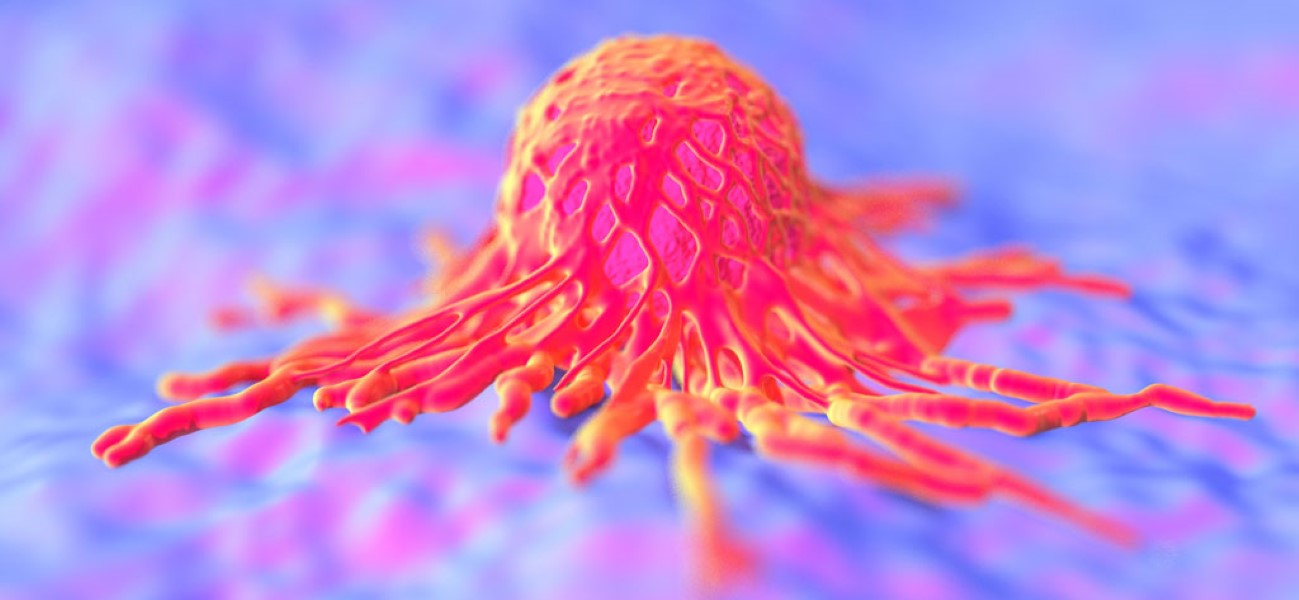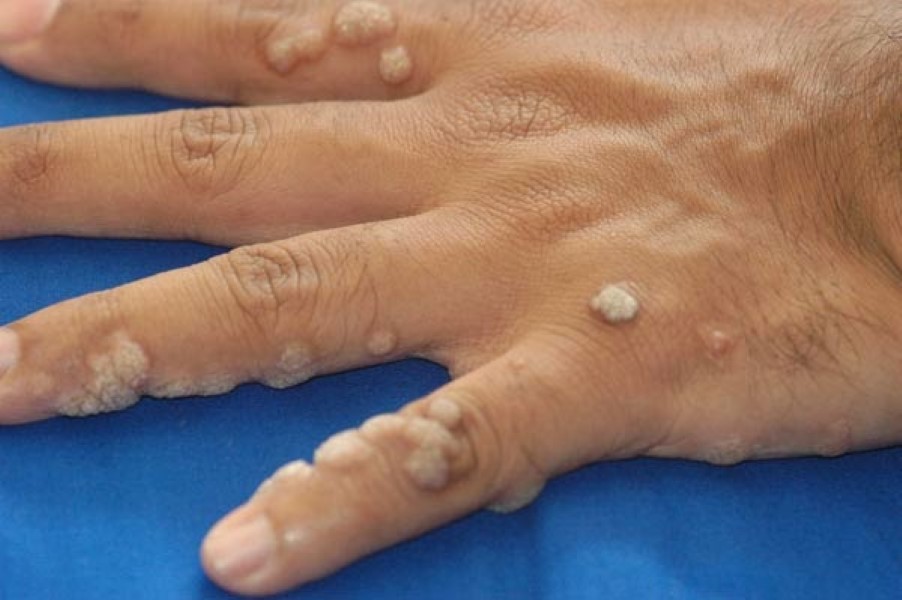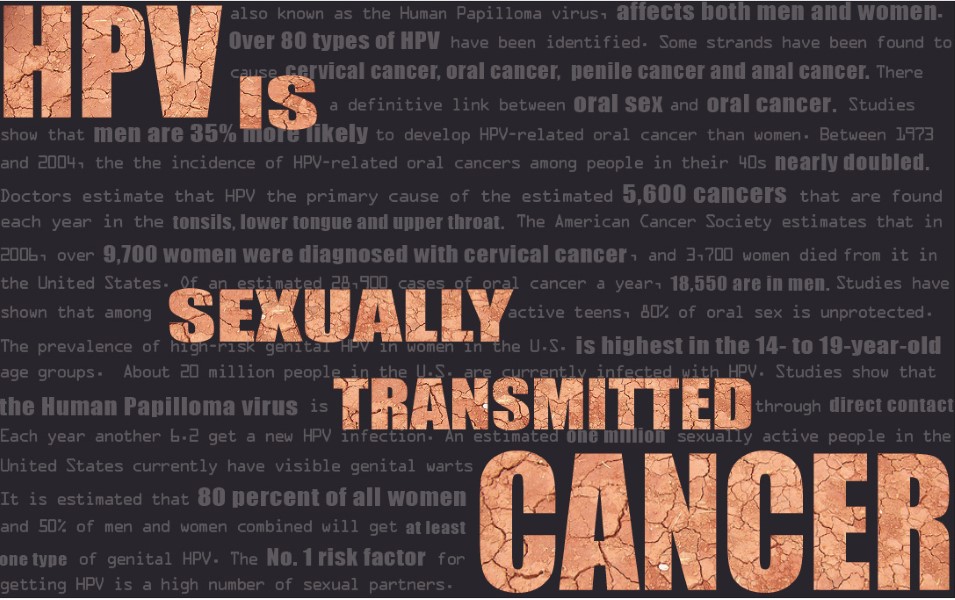We all know that sex can be a lot of fun. Some sex has even been proven to have health benefits (did you know that oral sex is good for you, for instance?). But there’s a darker side to it too. Sexually-transmitted infections and diseases we all know about. From the relatively common and not-too-worrying like chlamydia, to the dangerous and scary like syphilis. But did you know that there’s an STD out there that can make you up to 32 times more likely to develop cancer…?
Human papillomavirus is the most common viral infection of the human reproductive tract. Known as ‘HPV‘, it’s a common and extremely contagious infection. One which more than 80% of sexually active women and 50% of active men will acquire at some time in their lives, according to the UK’s National Health Service. HPV is the name given to a group of viruses that can affect your skin and the moist membranes which line your body. In such areas as the anus, cervix, mouth and throat.
But the worst part? HPV causes abnormal tissue and cell growth. And what does that mean? Well, in many cases – cancer. Cervical, penile, anal, testicular, oral… The list is long. And worrying. And the crazy part? So few people know about it.

Contracting the human papillomavirus isn’t a death sentence, however. Many people contract it through bodily contact with an infected person and it either lies dormant or only shows itself in the appearance of harmless, if slightly unsightly warts. Either on the hands, fingers and mouth as the dreaded genital wart…

According to the World Health Organization (WHO):
- Most people will contract it in their lives, though most people’s will clear naturally within two years.
- Not all HPV is spread through penetrative sex. Petting can be enough.
- Cervical cancer is easily the most common HPV-related disease out there. In fact, almost all cases of cervical cancer attributable to an HPV infection.
- There are more than a hundred types of HPV. 13 of which are cancer causing (these are known as high risk types).
- Intercourse early in life and smoking has been known to increase HPV sufferers’ chance of getting cervical cancer.

Vaccination against HPV is available and is recommended before a person becomes sexually active. The vaccines cannot, of course, treat HPV itself or any of its associated cancers. Clinical trial results have shown that the main vaccines available are safe and particularly effective in preventing infection.

Wall Street and Fatal Attraction actor Michael Douglas famously attributed his throat cancer to HPV and, specifically, going down on his wife…

In an interview with British newspaper The Guardian back in 2011, he said this about his illness:
“Without wanting to get too specific, this particular cancer is caused by HPV, which actually comes about from cunnilingus. I did worry if the stress caused by my son’s incarceration didn’t help trigger it. But yeah, it’s a sexually transmitted disease that causes cancer. And if you have it, cunnilingus is also the best cure for it.”

The US-based National Cancer Institute has this to say about prevention of HPV:
- The most effective way to guard completely against contracting HPV is to remain abstinent and refrain for any sexual contact whatsoever. That’s not much fun though, is it?
- Wearing a condom can cut down on the chance of catching it.
- Don’t start sexual activity until you’re a fully physically mature.
- Keep the number of sexual partners limited. The bigger the number, the bigger the risk.
- The Food and Drug Administration (FDA) have approved 3 vaccines to prevent HPV spreading – Gardasil®, Gardasil® 9, and Cervarix®.
While many medical experts and bodies encourage vaccination, it’s important to conduct your own research on the procedure, it’s efficacy and the potential hazards and side effects before sending your child for the jab. Controversy exists over how safe these vaccines really are…
Be vigilant, be sensible, be safe. If you think that this is an important message, please share this post with your friends and family.
